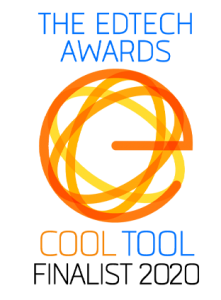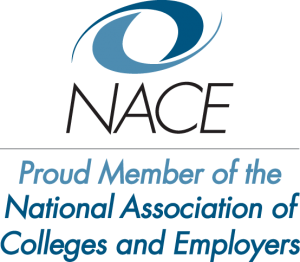By now, most individuals have at least heard the terms predictive analytics, artificial intelligence (AI), and machine learning – but what exactly are these things and how do they affect us? More specifically, how do they affect the future of higher education?
The Digital Age
We are currently living in the Digital Age, or “information age” – a historic period characterized by a rapid shift from traditional industry to an economy based on information technology. In essence, technology is changing our lives in a huge way with the assistance of things like predictive analytics, artificial intelligence, and machine learning. And we’re just getting started.
What are Predictive Analytics?
Predictive analytics is a form of advanced analytics and modeling that uses data to make predictions about the future. Insights from such analytics allow us to infer what is likely to happen.
What is AI?
At its core, artificial intelligence enables people to “rethink how we integrate information, analyze data, and use the resulting insights to improve decision making”[1]. AI is the development of computer systems that allows us to perform tasks that normally require human intelligence. The growing presence of AI presents enormous opportunities for economic development. In fact, PriceWaterhouseCoopers estimated that “artificial intelligence technologies could increase global GDP by $15.7 trillion, a full 14%, by 2030.”[1]
What is Machine Learning?
Machine learning is an application of AI that “that provides systems the ability to automatically learn and improve from experience without being explicitly programmed.”[2] In other words, it is a method of analysis that automates the building of analytical models.
Technological breakthroughs have disrupted nearly every industry: from retail, media, entertainment, e-commerce, transportation, construction, and many others. In Ernst’s and Young’s 2012 Report, University of the Future: A thousand year old industry on the cusp of profound change, they suggest education is the next industry to be disrupted by such technologies.[3]
So, as predictive analytics, AI, and machine learning take the world by storm, how exactly can we expect such technologies to impact education?
Higher Education Predictive Analytics in the Digital Age
The overwhelming presence of devices in the lives of learners is an indication of the rapid adoption of technology into the educational landscape.
For example, a study examining college student usage and ownership of devices[4] shows that…
- 88% of students own a laptop and use it regularly.
- 85% of students own a smartphone and use it regularly.
- 52% of students own a tablet and use it regularly.
Furthermore, 75% of teachers use technology daily with their students.[5] It’s clear that students and educators are immersed in technology each and every day, making the education industry ripe for further disruption.
Education Technology
There is an entire industry, Education Technology (Ed Tech), focused on leveraging technology to improve educational processes and outcomes for learners and institutions.
With 74% of educators supporting the use of technology in schools, and 69% stating, “technology has helped to do more than ever before for their students”[6], it’s no wonder the Ed Tech industry is accelerating the development of innovative resources for learners and educators to benefit from recent technological advances.
Ed Tech Trends
HolonIQ used machine learning and linguistic technology to analyze patterns in offerings of various organizations and Ed Tech startups, creating a summary of the 2019 Global Learning Landscape.[7]
Overall, they identified 55 categories where Ed Tech companies are impacting the future of education. In each category, there are anywhere from one to 19 companies focusing on technological advances in these areas.

Such categories include:
- Knowledge and Content Management
- Education Management
- Traditional Models
- New Delivery Models
- Experiencing Learning
- International Education
- Learning Support
- Assessment & Verification
- Workforce & Talent
- Skills & Jobs
While discussing Ed Tech trends to watch for, David Goodrum, Director of Academic Technology and Information Services at Oregon State University said,
“Digital education is generating new learning opportunities as students engage in online, digital environments and as faculty change educational practices through the use of hybrid courses, personalized instruction, new collaboration models and a wide array of innovative, engaging learning strategies.”[8]
This begins to paint a clearer picture of how such technologies might be leveraged in tandem to provide a superior educational experience for learners.
The Future of Higher Education Predictive Analytics in the Digital Age
It is clear that technology is an ever-present force in the lives of learners with the multitude of Ed Tech products that already exist and are being implemented in schools across the nation. With rapid acceleration of digital capabilities, what technologies might we see in the future of education?
TechRepublic outlines the ten technologies that will impact higher the most this year[9]. Included in their list were:
- Next-generation security and risk management
- Artificial intelligence (AI) conversational interfaces
- Smart campus
- Higher education predictive analytics
- Nudge tech
- Digital credentialing tech
- Hybrid integration platforms
- Career Software
- Student cross-lifecycle CRM
- Wireless presentation technologies
In a survey of 377 executives[10] representing a range of education institutions, just 1 in 10 organizations have invested in and deployed artificial intelligence, though there is significant potential for these technologies to reduce costs and accelerate learning outcomes. Respondents identified a lack of strategy, lack of talent, and lack of data as challenges to implementing AI solutions.
Summary
While technological advances give us the capability to disrupt the education industry, the question of, “why?” still remains. A recent Forbes article discussing industries on the cusp of technological disruption [11] shared that,
“The mass approach to education is not serving our kids . . . The trend in education will be towards personalization—finding out the unique interests of the child and letting them explore that curiosity in other subjects. AI can help by making lessons more personalized and interesting to the individual.”
In essence, we’re moving away from a “one-size-fits-all” learning experience. Ed Tech platforms are collectively driving toward the creation of a personalized learning experience, tailored to the capabilities, goals, and motives of each learner.
At PathwayU, we’re excited about this global shift towards a personalized learner experience, as we leverage predictive analytics to provide a superior software platform that predictively matches students to career and educational pathways aligned with their unique personal characteristics.
[1] https://www.brookings.edu/research/how-artificial-intelligence-is-transforming-the-world/
[2] https://www.expertsystem.com/machine-learning-definition/
[3] https://www.universityworldnews.com/post.php?story=20160412194215660
[4] https://www.pearsoned.com/wp-content/uploads/2015-Pearson-Student-Mobile-Device-Survey-College.pdf
[5] http://blog.freckle.com/2016/11/17/2017-technology-in-the-classroom-survey-results
[6] https://edtechmagazine.com/k12/article/2013/02/survey-74-percent-educators-support-use-technology-schools
[7] https://globallearninglandscape.org/
[8] https://campustechnology.com/Articles/2018/01/11/7-Ed-Tech-Trends-to-Watch-in-2018.aspx?Page=2
[9] https://www.techrepublic.com/article/10-technologies-that-will-impact-higher-education-the-most-this-year/
[10] https://www.holoniq.com/notes/ai-potential-adoption-and-barriers-in-global-education/
[11] https://www.forbes.com/sites/forbestechcouncil/2019/02/05/10-industries-on-the-cusp-of-technological-disruption/#538f534d5d47







